Table of Contents
Last Updated on November 18, 2022
Period poverty is a common and growing issue. Ensuring girls, women and those who menstruate have access to menstrual products, hygienic spaces in which to use them, and the right to manage menstruation without shame or stigma is essential. But this isn’t always the case for many, which not only can affect the health and wellbeing of women and girls, but it can also mean younger teenagers’ education and sometimes entire lives are affected, just because they aren’t given access to the tools needed to manage their period correctly.
What Is Period Poverty?
Period Poverty is the lack of access to menstrual products, proper hygiene education and menstrual care disposal infrastructure. The stigmatization of periods and period products makes tackling period poverty especially difficult. There is simply no one-size-fits-all fix to period poverty because it takes on different forms throughout the world.
Global Period Poverty Statistics & Experiences
Although experiences in varying degrees of severity, the following countries are just a few examples of how period poverty is experienced around the world.
Thailand Period Poverty Facts
In December of 2019, Member of Thai Parliament Ketpreeya Kaewsanmuang used social media to raise awareness for what she thought was the classification of menstrual products as luxury items. Categorizing menstrual products as such would mean that they are subject to the 40% luxury tax rate. Thai people were outraged by the idea that menstrual products were classified this way, which prompted a swift response by the Thai Government.
Prayut Chan-o-cha insisted that her social media campaign was fake news and that tampons were classified as necessities and only had a 7% tax on them. Although Kaewsanmuang’s claims were reported to be unfounded, she sparked a wider conversation about period poverty in Thailand, where the cheapest menstrual pads cost 5 Baht each.
Assuming someone uses 5 pads a day, menstrual care takes up over 12% of their daily minimum wage of 313 Baht ($9.95 USD); something many people simply cannot afford. Period poverty means that many working women, who are being encouraged by the Thai Government to have more children, cannot because their income does not cover their own basic needs.
Periods are still very much taboo in Thailand, which means that there are no rigorous studies examining the state of period poverty. That alone contributes to period poverty by limited access to information and leaves people in Thailand with a huge knowledge gap.
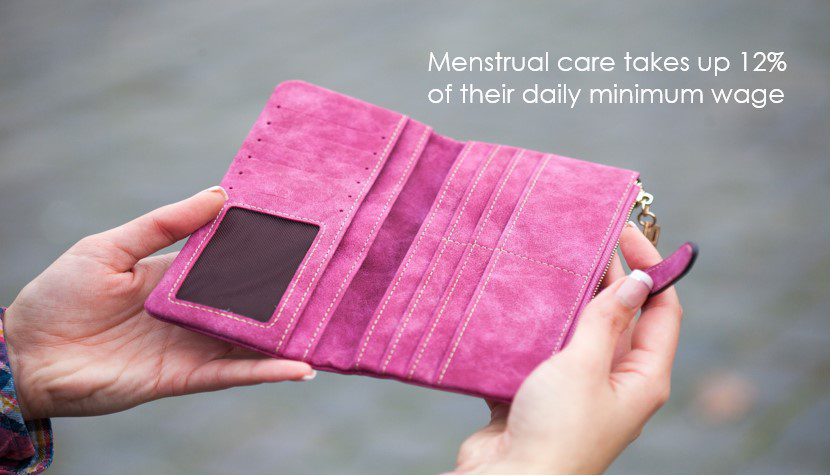

Period Poverty in Nepal
Women and girls, primarily from mid-western Nepal, practice Chhaupadi during their period. Chhaupadi is a form of menstrual exile, in which women are forced into menstrual huts and not allowed to come into contact with other family members or their home, or participate in social events, and school.
This practice is founded on the belief that women are unclean during their period and should be isolated to stop them from contaminating the people and things around them. These huts leave women at risk for snake bites, physical or sexual abuse, and smoke inhalation because of their poor ventilation.
A 2018 study by Prabisha Amatya et al. found that 72% of adolescent girls lived in menstrual hurts during their period. 70% of those huts did not have toilets, 38% have no mattress or blankets for sleeping, and 26% has no ventilation at all. These huts are so dangerous that a number of women have died during their stay, prompting backlash from human rights activists.
The Nepali Supreme Court declared the practice to be illegal in 2005, but it remains common in western Nepal. Activists are working to raise awareness about the dangers of these huts and hoping to change the societal attitudes towards menstruating women. In December 2019, for the first time, a man was arrested for forcing his sister-in-law into a hut which lead to her death.
Although progress may be slow, societal attitudes seems to be changing and the Nepali Government is taking this practice more seriously. Period Poverty in Nepal remains potentially life-threatening as educators continue to push for better infrastructure and menstrual education for all.
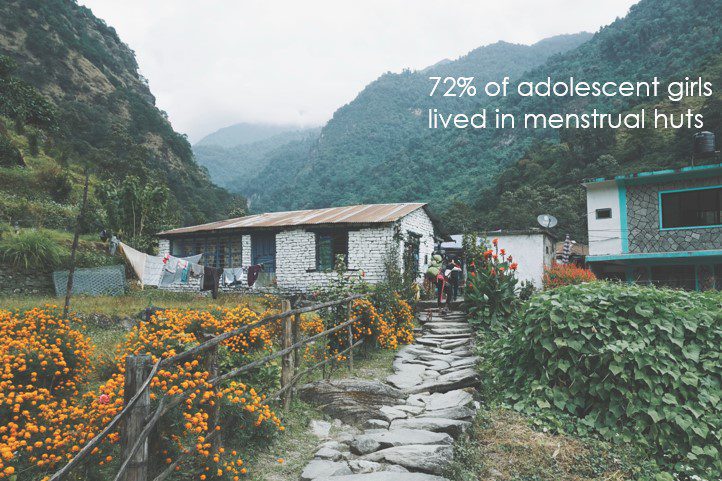

Venezuela Period Poverty
Venezuela is currently suffering from extreme hyperinflation and a lack of basic resources and food. As a result, in 2016 the price of tampons increased by 1800%. While this number may shock you, this level of inflation is commonplace in Venezuela since its extreme economic depression. Period Poverty in Venezuela means that many women are forced to buy menstrual products in the black market at prices that equal roughly 1/3 of their monthly incomes.
The Government of Venezuela is not accepting foreign aid, so many women are looking to newspaper and other paper products as menstrual substitutes. Having to use newspaper as a menstrual product is unhygienic and dehumanizing yet may sadly be the only alternative for people who rather spend that money towards food and housing.
Unregulated black-market sellers are using this level of period poverty to their advantage by continuously hiking up prices to whatever they please. Remittances from Venezuelans living abroad help but are far from providing a long-term solution.
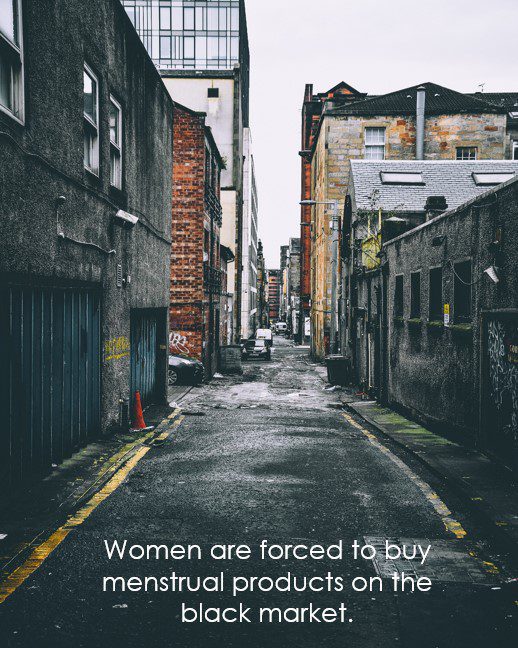

Period Poverty in Canada
Although period poverty in Canada may not be as extreme as the cases mentioned above, Canada is a perfect example of how there is always room for improvement when it comes to accessibility and affordability. Because the Government of Canada does not nationally mandate all schools and workplaces to provide free menstrual products, 70% of people who menstruate have to miss work or school due to their period. Even if you don’t have to miss due to an unexpected period, 1/3 of people who menstruate under 25 struggles to afford menstrual products, which can cost up to $6000 in their lifetime. That number can increase dramatically depending on the region. Northern Indigenous communities regularly lack access to basic goods and services. The goods that are available can triple in price because of how remote some communities are. As a result, Indigenous Canadians are forced to pay up to $18 for a box of tampons that would cost around $5 in central regions. This regional gap in pricing leaves people choosing between food or menstrual hygiene.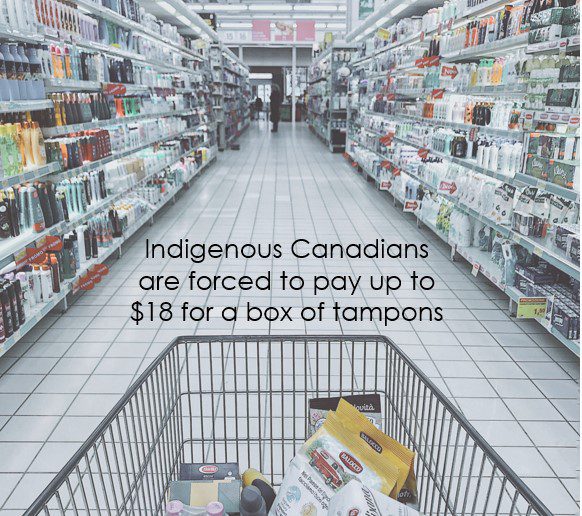

There is Hope to Achieve Proper Menstrual Health and Hygiene
The Tampon Tuesday Movement
There are a number of NGO’s and grassroots movements working to end period poverty in their communities. Citron Hygiene is committed to the fight against period poverty and has chosen to sponsor Tampon Tuesday. Tampon Tuesday is a movement based out of London, Ontario which is dedicated to collecting donated menstrual products and distributing them to people in need.
The Tampon Tuesday movement began in 2009 when Mandi Fields, the Community Relations Coordinator for CTV London realized that there were no menstrual products being donated to the London Food Bank. She created Tampon Tuesday to spread awareness for the often-ignored menstrual needs of people, and to encourage more locals to donate. Since 2009, Tampon Tuesday has grown, and events are now being held all throughout Canada.
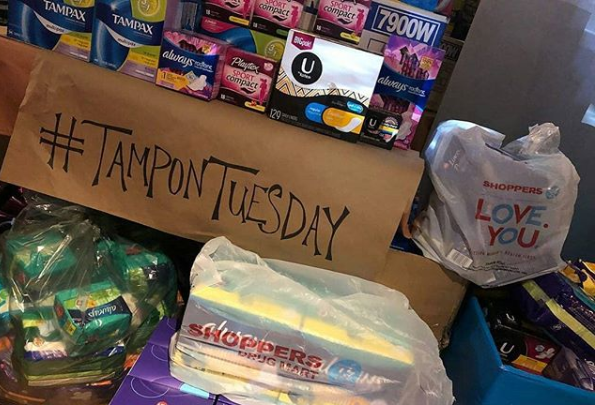

The Period Products Bill
On February 25, 2020, the Period Products Bill was unanimously passed through the first round of voting in the Scottish Parliament. The successful passing of this Bill would mean that the Scottish Government would be the first in the world to introduce universal menstrual care. Scotland has become a global leader in the fight for period dignity and gold standard for addressing period poverty.
Help Tackle Period Poverty Today!
By supplying coinless vend menstrual hygiene products in your school, restaurant or workplace, you can provide washroom users with the sanitary products they need without an issue or any embarrassment. Citron’s coinless vending machines do not require tokens or coins to operate to ensure products are available to the end-user when they need them most and to promote period dignity.
If you’re interested in learning more about Citron Hygiene’s feminine hygiene services, fill in the form below to discuss your business’s needs with the hygiene experts.
Related posts:
- What Period Poverty Looks Like Around the World
- How to combat period poverty this holiday season
- How to Fight Period Poverty in Schools
- How your Business can take a Stand Against Period Poverty
- World Hepatitis Awareness Day
- Menstrual Vending Machines: Why Free Period Products Matter
- Is Turning Red a Period Metaphor? Yes! And, Menstrual Hygiene Experts Want More!
- Why Creating a Period Positive Washroom Will Bring You More Business